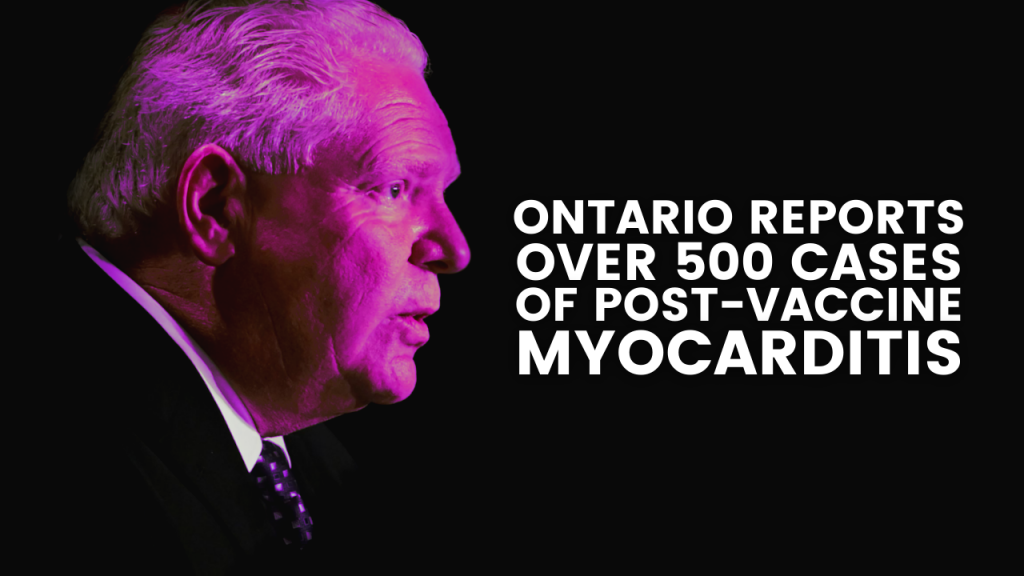
Ontario reached a new low last week after the government confirmed 521 cases of myocarditis/pericarditis following inoculation with the still-widely-mandated COVID vaccine.
“As of November 7, 2021, there have been 521 reports of myocarditis or pericarditis following receipt of COVID-19 mRNA vaccines in Ontario,” writes Public Health Ontario (PHO) in a report.
“These reports have been identified through case-level review of all reported AEFIs. Of these, 138 (26.5%) were diagnosed with myocarditis and 239 (45.9%) were diagnosed with pericarditis. The remaining 144 (27.6%) were diagnosed with perimyocarditis (n=21), myopericarditis (n=119) and myocarditis/pericarditis (n=4).”
Moreover, the rate of incidents of post-vaccine myocarditis appears to be increasing, as 45 new cases were reported in just the last week, marking a 9.45 per cent increase in a single week.
As PHO notes, young males between 12-24 are the most likely to suffer from post-vaccine myocarditis, usually after the second dose and usually after four to five days after vaccination.
The PHO’s data now shows that males in the 12-17 age group are now reporting myocarditis/pericarditis following the first dose at a rate of 65.3 per million and 133.5 per million following the second dose, roughly 1 in 5,000 when both reports are combined.
Similarly, and even more damning, males in the 18-24 age group are now reporting myocarditis/pericarditis at a rate of 49.9 per million after the first dose and 181.7 per million after the second dose, roughly 1 report of myocarditis in 4,318 vaccine recipients.
It should be noted that on September 29, Ontario’s Chief Medical Officer Kieran Moore announced they would no longer recommend the Moderna vaccine because of a similar risk factor for males in these age groups.
“This recommendation was based on the advice of Ontario’s Children COVID-19 Vaccine Table, Ontario Vaccine Clinical Advisory Group, and Public Health Ontario and is due to an observed increase in Ontario of the very rare heart condition called pericarditis/myocarditis following vaccination with Moderna compared to Pfizer in the 18 to 24-year-old age group, particularly among males,” stated Moore at the time.
“The majority of reported cases have been mild with individuals recovering quickly, normally with anti-inflammatory medication. Symptoms have typically been reported to start within one week after vaccination, more commonly after the second dose.”
While Moore claims that myocarditis (heart inflammation) is mild, myocarditis is deadly and very often leads to lifetime disability for those who survive.
According to the National Center for Biotechnology, 20 per cent of those who develop myocarditis die in the first year. A full 50 per cent — yes, half — die within five years.
This means that the vaccine can be expected to kill over 250 otherwise healthy people (excluding those who die from other post-vaccine side effects).
Based on the available data, assuming that reports of myocarditis are accurate, if 1 in 4,318 males in the 18-24 year age group end up with post-vaccine myocarditis and 1 in 2 who are diagnosed with myocarditis will die within five years, we can expect the vaccine to kill 1 in 8,636 for those in this demographic who receive the vaccine — significantly higher than their risk from COVID-19 which is absolutely negligible.












